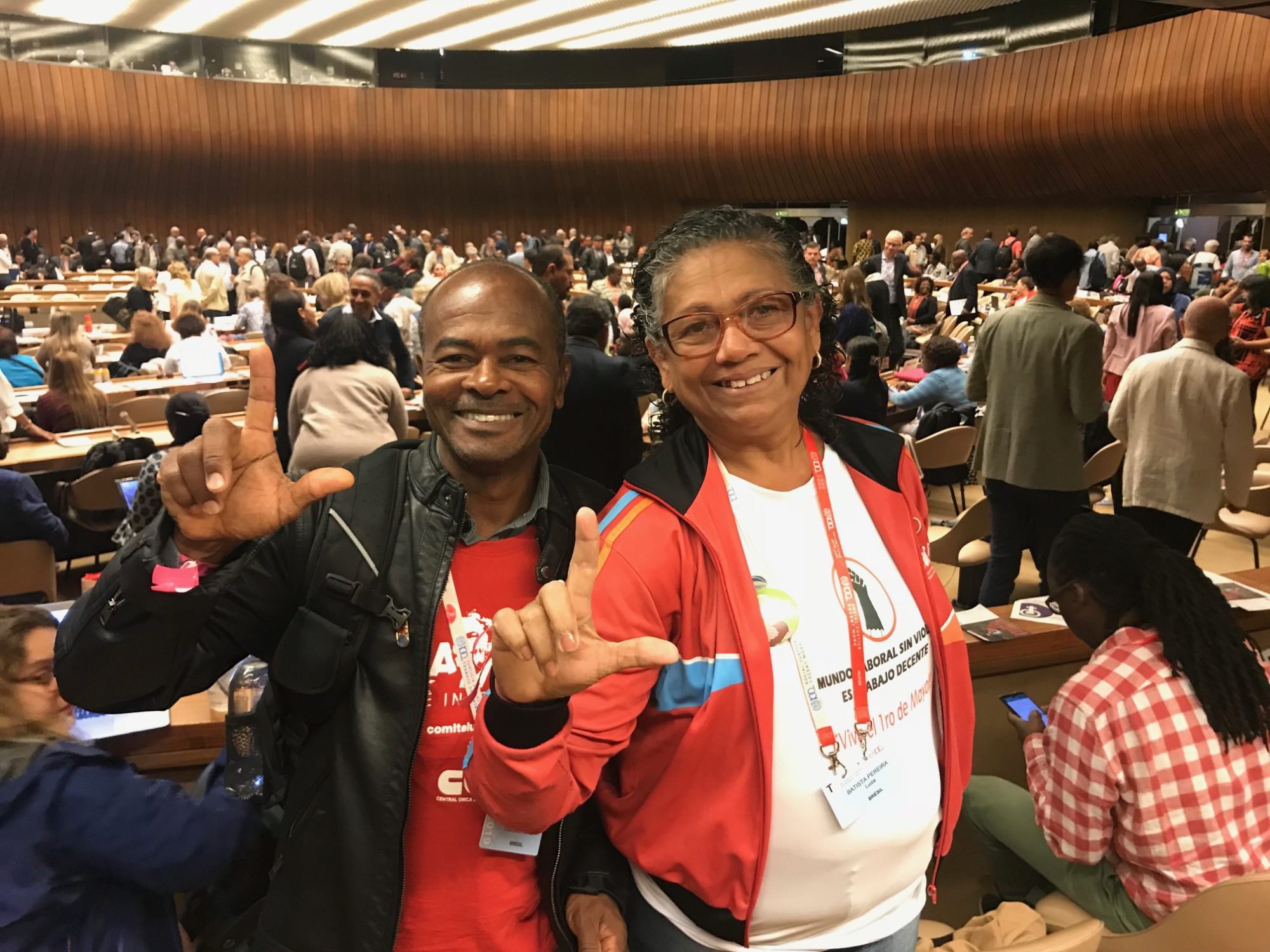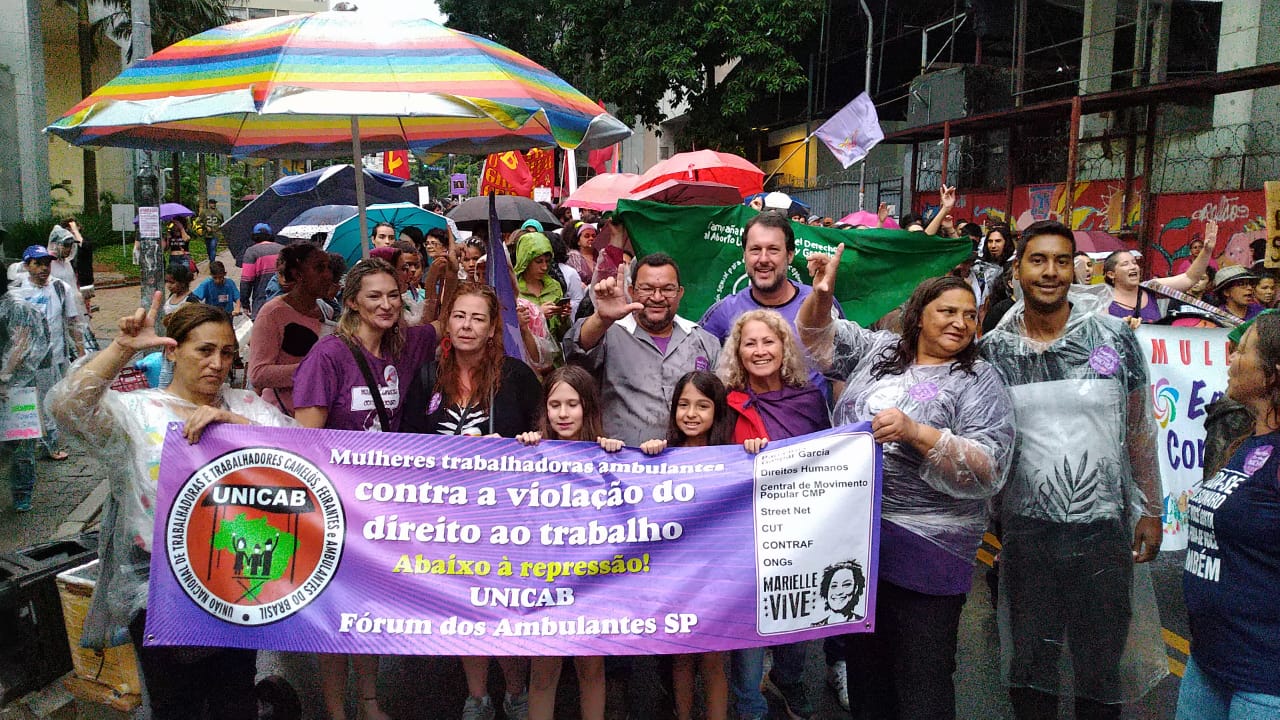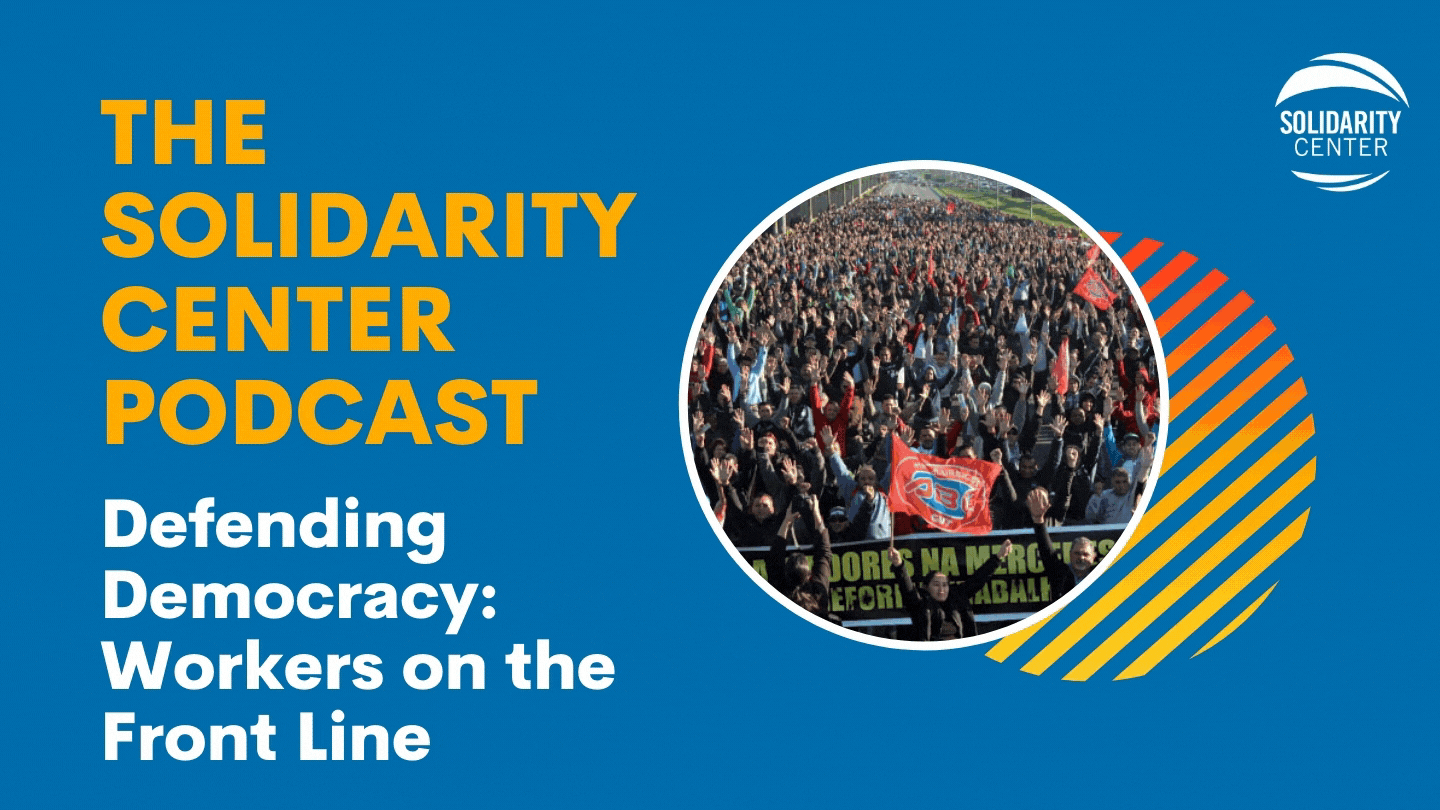Millions of street vendors worldwide lost their livelihoods nearly overnight during the pandemic, unable to sell in open markets during lockdowns or unwilling to risk their health to do so. But street vendors in Brazil, through the National Union of Street Vendors...

In Brazil, the Solidarity Center works with union partners, such as the domestic worker federation, FENATRAD, to advance worker rights. Credit: Solidarity Center/Alexis De Simone
Podcast: Defending Democracy—Workers on the Front Lines
Democracy is under siege around the world with the subversion of democratic processes and outright coups—and attacks worker rights are a big part of authoritarian efforts to cut off civil liberties. On this week’s Solidarity Center Podcast, two worker advocates from...
[IndustriAll] Gender Violence Study in Brazilian Garment Factories Provides a ‘Wake-up Call to Action’
The vast majority of Brazilian textile and shoe factory workers who took part in a recent study say they have experienced some form of violence at work, often gender-based violence and harassment—to the extent that “for many women, work is synonymous with suffering,” writes the Solidarity Center’s Tula Connell.


